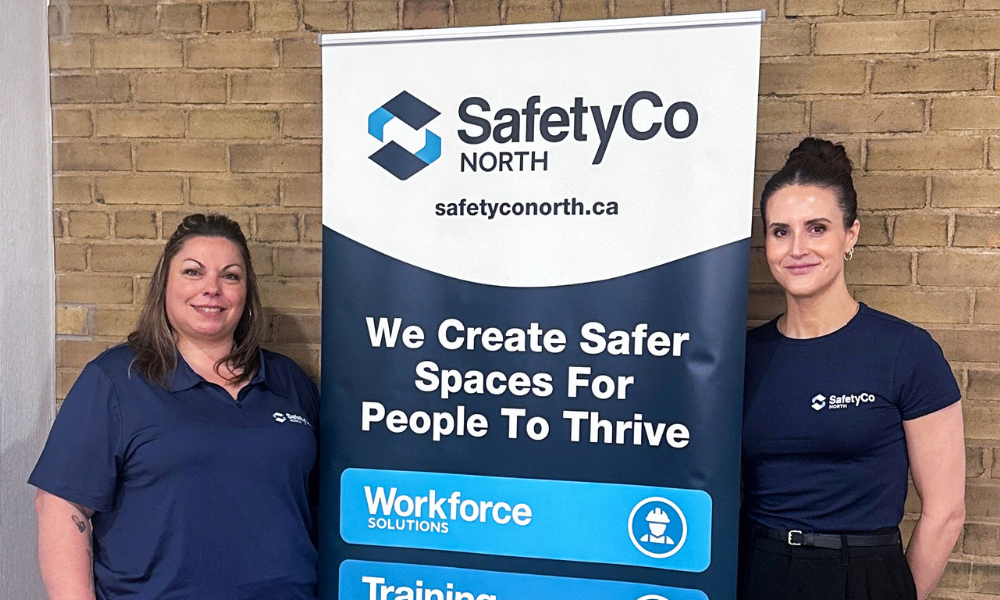Dialogue report reveals impact of workplace stress and financial pressures

A new report from Dialogue Health Technologies highlights a concerning trend: young Canadian workers, particularly those in their twenties, are grappling with the lowest levels of well-being among all age groups. Dialogue’s semi-annual Health and Well-Being Report: A Canadian Benchmark uses the World Health Organization’s WHO-5 Well-Being Index to assess the mental health and lifestyle factors of thousands of Canadians. The latest findings are clear—financial pressures and stress are taking a heavy toll.
"Canadian workers’ well-being has stagnated at alarmingly low levels," says Dr. Marc Robin, medical director at Dialogue. "The average score is just 49.4 out of 100, and for workers aged 20 to 29, it’s even lower at 46.3. This is troubling because a score under 50 indicates a significant risk of developing mental health issues like depression or anxiety."
Financial stress fuels a crisis
The report underscores the profound impact of financial stress, which has become a leading cause of sleep issues and reduced physical activity. "Financial pressures—like rising costs of living—are keeping people up at night," Dr. Robin explains. "This lack of sleep is creating a cascading effect on other dimensions of health, including stress, mood, and overall sense of purpose."
Methodology plays a key role in these insights. Dialogue’s Well-Being Score gathers data through a quick, one-minute survey of five standardized questions. This validated tool assesses sleep, mood, stress management, physical activity, and sense of purpose, drawing responses from over 12,000 Canadians from January to June 2024.
Untapped resources and a shift in benefits
Despite growing awareness, many employees remain disconnected from existing resources. More than half of workers with access to Employee Assistance Programs (EAPs) have never used them, even though these programs offer financial counseling and mental health support. Younger workers, in particular, struggle to connect with traditional helplines.
"The typical 1-800 number just doesn’t resonate with younger generations," Dr. Robin points out. "Employers need to modernize their approach, meeting employees where they are—on their smartphones—through virtual-first solutions. These are proven to reduce barriers to access and help people take action sooner."
Dialogue’s findings suggest that when workers engage with tools like the Well-Being Score, they are far more likely to adopt positive changes. In fact, 80% of users who received actionable feedback through Dialogue’s wellness platform took steps to improve their health. These changes ranged from incorporating healthy habits to seeking professional mental health support.
Call to action for employers
Employers play a critical role in reversing this trend. By analyzing aggregated well-being data, organizations can pinpoint the most pressing issues affecting their workforce and tailor interventions accordingly. Dr. Robin emphasizes the importance of creating a culture that prioritizes mental health and work-life balance.
"If sleep is the biggest area of struggle for your employees, maybe it’s time to re-evaluate company policies, like expecting answers to emails at midnight," Dr. Robin suggests. "These small shifts can make a huge difference in reducing stress and fostering a healthier workplace."
Optimism amid the challenges
Despite the challenges, there’s a silver lining: younger generations are increasingly willing to talk about mental health and seek help. "This openness is one of the positive outcomes of the pandemic," Dr. Robin says. "Mental health is less taboo than it was, and more people are motivated to improve their well-being. When employers provide the right tools, workers will use them."
Dialogue’s Health and Well-Being Report is a call to action for Canadian workplaces to innovate and invest in their employees’ health. The stakes are high, but "with the right support, we can empower workers to take control of their well-being and build healthier, more resilient teams," says Dr. Robin.





